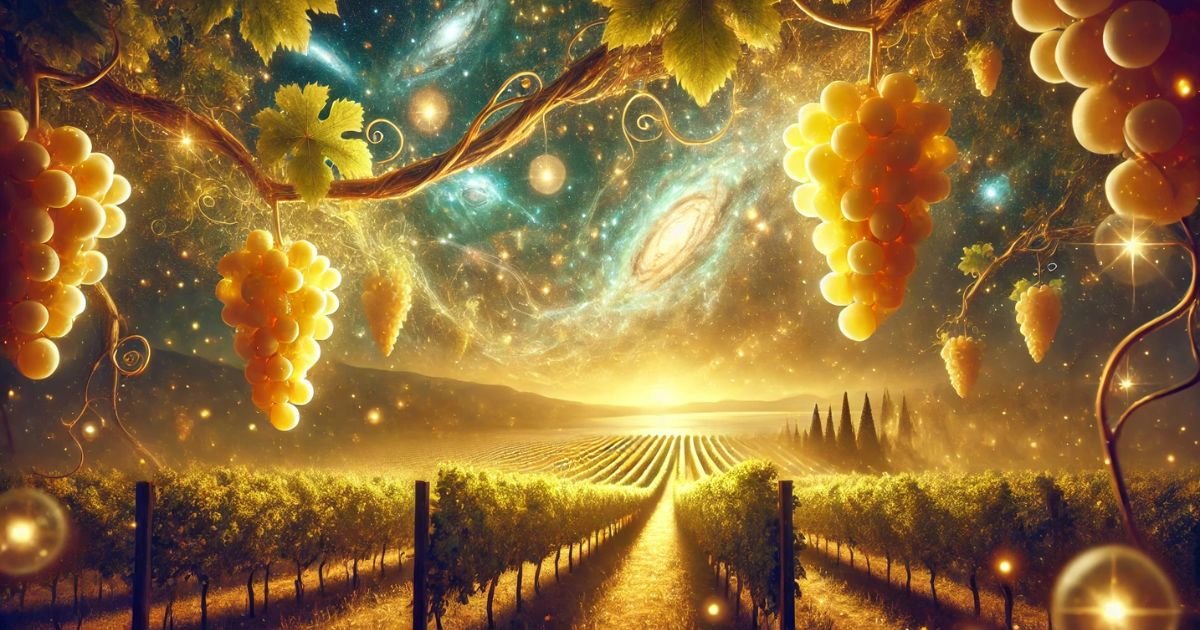Wine of the Gods is a phrase that resonates with mystery and reverence, often invoking the imagery of divine indulgence and immortality. Historically, it has been associated with the finest wines that ancient civilizations believed were bestowed upon them by the gods themselves. In Greek mythology, Dionysus, the god commonly associated with wine, revered the divine essence of this beverage. The phrase Wine of the Gods connects to more than just the beverage itself; it symbolizes the sacred nature of wine in religious rituals, festivals, and sacred offerings.
From the vineyards of ancient Greece to the grand wine cultures of Rome and Egypt, wine was considered a gift from the heavens, elevating its status beyond a simple drink. The association between Wine of the Gods and divine figures helps emphasize its revered status, shaping its legacy through history as one of the most honored drinks in various cultures.
Origins of the Wine of the Gods
The origins of Wine of the Gods date back to ancient civilizations where wine was not only a daily beverage but also a divine elixir linked to the gods. In Greek mythology, Dionysus, the god of wine, was credited with teaching humans how to cultivate grapes and make wine, elevating the drink to celestial status. Similarly, in Roman culture, Bacchus, the counterpart to Dionysus, was venerated for his influence over vineyards and the production of wine. Ancient Egyptians also revered wine, associating it with immortality and offerings to the gods. The phrase Wine of the Gods reflects how these ancient cultures viewed wine as a symbol of divine favor.
It wasn’t just about enjoyment; wine was central to religious ceremonies, celebrations, and rituals, serving as a medium to connect mortals with the divine. Over time, this sacred tradition has been carried forward in modern winemaking practices.
The Cultural Significance of Wine in Ancient Civilizations
Wine, particularly Wine of the Gods, held deep cultural and religious significance in many ancient civilizations. In Greece, wine was central to the worship of Dionysus, the god of wine, fertility, and theater. It was used in sacred rituals and festivals, symbolizing the divine and the transcendence of the ordinary world.
- Ancient Greece: Wine was a key element in the Dionysian cult, celebrated through feasts and theatrical performances.
- Ancient Rome: Bacchus, the Roman counterpart of Dionysus, influenced wine production, making it an integral part of Roman social and religious life.
- Ancient Egypt: Wine was reserved for pharaohs and the elite, symbolizing divine favor and immortality.
In each of these cultures, Wine of the Gods was not merely a drink; it was a sacred medium to connect with the divine, celebrated in various forms of rituals, offerings, and ceremonies.
The Wine of the Gods in Modern Context
The legacy of Wine of the Gods continues to influence modern winemaking and wine culture. Today, many winemakers draw inspiration from the ancient traditions and sacred status that wine once held. Although the religious and ritualistic significance has lessened, wine continues to be admired as a luxurious and divine treat.
- Reviving Ancient Techniques: Many wineries today strive to incorporate ancient winemaking methods, using traditional grape varieties and techniques passed down through generations.
- Divine Wines in Modern Culture: Some wineries market their wines as “Wine of the Gods,” emphasizing the historical and sacred connection that wine has had in human history.
In a modern context, Wine of the Gods embodies more than just quality. It represents a continuation of ancient traditions and a deep respect for the artistry and culture surrounding winemaking, preserving its celestial reputation.
The Myths and Legends Surrounding the Wine of the Gods
The term Wine of the Gods is deeply rooted in ancient mythology and legendary stories that span centuries. In Greek mythology, it was believed that Dionysus, the god of wine, bestowed upon humanity the knowledge of how to make wine. His festivals, known as the Dionysia, celebrated the divine nature of wine, where it was consumed in abundance to honor the gods. Similarly, in Roman culture, Bacchus, the Roman counterpart to Dionysus, was central to wine-related rituals. In Egyptian mythology, wine was considered a drink of immortality, often used in religious offerings to the gods.
These myths and legends surrounding Wine of the Gods reflect the drink’s sacred nature, symbolizing divine favor and connection to the heavens. Wine was seen as a bridge between the mortal and the divine, with each sip connecting worshippers to the gods.
Must Read: Zero1magazinecom: Your Gateway to Art, Fashion, and Culture
How Wine of the Gods Influences Modern Wine Culture
The influence of Wine of the Gods on modern wine culture is profound, shaping both winemaking practices and the perception of wine as a luxury product. Ancient traditions continue to inspire contemporary wineries, with many embracing the same techniques and grape varieties that were used centuries ago. Wine of the Gods is often marketed as a premium product, reflecting its divine legacy and association with sophistication. Wine enthusiasts today still celebrate the ritualistic and ceremonial aspects of wine, often enjoying it in sacred moments of celebration or reflection.
Modern wine tourism also highlights the historical significance of wine regions that produce these revered beverages, drawing visitors eager to explore the legacy of Wine of the Gods and its enduring cultural impact.
Final Words: The Everlasting Legacy of the Wine of the Gods
The legacy of Wine of the Gods continues to transcend time, remaining a symbol of luxury, divinity, and tradition. From its sacred role in ancient rituals to its place in modern celebrations, wine has always been more than just a drink; it is a connection to something greater, a bridge between the mortal and divine. Ancient myths surrounding Dionysus, Bacchus, and other deities have shaped how wine is revered and consumed today.
As modern winemakers embrace ancient practices, the allure of Wine of the Gods endures, inviting connoisseurs to savor not just its taste, but the rich history it carries. This divine beverage, steeped in centuries of culture and mythology, continues to inspire both awe and admiration, ensuring its everlasting legacy in wine culture.
FAQs About Wine of the Gods
- What is meant by “Wine of the Gods”?
Wine of the Gods refers to the sacred, divine wines celebrated in ancient cultures like Greece, Rome, and Egypt. It symbolizes wine’s connection to gods such as Dionysus and Bacchus, who were believed to have gifted humanity with the art of winemaking.
- Which gods are associated with the Wine of the Gods?
In Greek mythology, Dionysus is the god of wine, while Bacchus is his Roman counterpart. Both gods are central to the traditions of winemaking and were honored through rituals involving wine.
- Is there a specific type of wine considered the “Wine of the Gods”?
While no single wine is universally labeled as Wine of the Gods, certain wines from ancient regions or those made with traditional methods may carry this symbolic title to highlight their historical and cultural significance.
- How did ancient cultures use wine in their rituals?
In ancient Greece and Rome, wine was used in religious ceremonies to honor the gods, particularly during festivals like the Dionysia and Bacchanalia. It was also used in sacrifices and offerings to seek divine favor.
- Can I experience the Wine of the Gods today?
Yes! Modern winemakers continue to honor ancient traditions, using grape varieties and methods passed down through generations. You can visit wine regions known for their rich history or seek out wines marketed as “divine” to experience a modern interpretation of Wine of the Gods.
Thanks for visiting Globalexpressinfo.com. Don’t forget to share it on Twitter.






